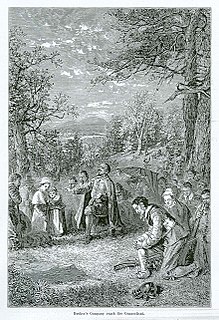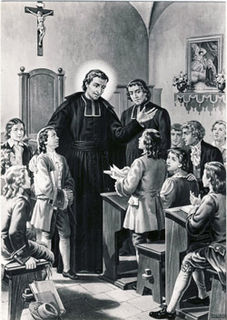A Quote by Charles Spurgeon
The highest science, the loftiest speculation, the mightiest philosophy, which can ever engage the attention of a child of God, is the name, the nature, the person, the work, the doings, and the existence of the great God whom he calls his Father.
Related Quotes
It is one of the great ironies of human history that some mortals with incorrect understanding of God and life's purposes sometimes scold God because of the abundance of human misery and suffering-which, indeed, lies all about us. Such individuals almost dare God to demonstrate His existence by straightening things out-and at once! But He is a much different kind of Father than that. Surely it is requisite to eternal life that we come to know God and Jesus Christ whom He has sent (see John 17:3).
'Go to My brethren, and say unto them, I ascend unto My Father, and your Father, and to My God, and your God' (Jn. 20:!7). He is our Father by grace through the Spirit of adoption (Rom. 8:15), but His Father by nature on account of His divinity. Similarly, He is our God as the creator of our human nature, but His God by reason of the dispensation whereby He became man. He made these distinctions so that we might understand the difference.
When the father is going on in his journey, if the child will not goe on, but stands gaping upon vanity, and when the father calls, he comes not, the onely way is this: the father steps aside behind a bush, and then the child runs and cries, and if he gets his father againe, he forsakes all his trifles, and walkes on more faster and more cheerefully with his father than ever.
To Whom does our God say, 'in our image' (Gen. 1:26), to whom if it is not to Him who is 'the brightness of His glory and the express image of His Person' (Heb. 1:3), 'the image of the invisible God' (Col. 1:15)? It is then to His living image, to Him Who has said 'I and My Father are one' (Jn. 10:30), 'He who has seen Me has seen the Father' (Jn. 14:9), that God says, 'Let us make man in our image'.
Let us quake before the great Spirit, Who is my God, Who has made me know God, Who is God there above, and Who forms God here: almighty, imparting manifold gifts, Him Whom the holy choir hymns, Who brings life to those in heaven and on earth, and is enthroned on high, coming from the Father, the divine force, self-commandeered; He is not a Child (for there is one worthy Child of the One who is best), nor is He outside the unseen Godhead, but of identical honor.
At this day . . . the earth sustains on her bosom many monster minds, minds which are not afraid to employ the seed of Deity deposited in human nature as a means of suppressing the name of God. Can anything be more detestable than this madness in man, who, finding God a hundred times both in his body and his soul, makes his excellence in this respect a pretext for denying that there is a God? He will not say that chance has made him different from the brutes; . . . but, substituting Nature as the architect of the universe, he suppresses the name of God.
In Philosophy, the contemplations of man do either penetrate unto God, or are circumferred to Nature, or are reflected and reverted upon himself. Out of which several inquiries there do arise three knowledges, Divine Philosophy, Natural Philosophy, and Human Philosophy or Humanity. For all things are marked and stamped with this triple character of the power of God, the difference of Nature and the use of Man.
As in the natural life a child must have a father and a mother, so in the supernatural life of grace a true child of the Church must have God for his Father and Mary for his mother. If he prides himself on having God for his Father but does not give to Mary the tender affection of a true child, he is an impostor and his father is the devil.
Our very name for God's Creation is NATURE, for that is what Nature is. I shall define Nature for you in simple words. Nature is an electric wave thought image of God's nature, electrically projected from His formless and unconditioned ONE LIGHT into countless many forms of conditioned light which we call matter.
It is certain that those who have the living faith in their hearts see at once that all existence is none other than the work of the God whom they adore. But for those in whom this light is extinguished, [if we were to show them our proofs of the existence of God] nothing is more calculated to arouse their contempt. . . .
Satan is ever seeking to inject that poison into our hearts to distrust God's goodness - especially in connection with his commandments. That is what really lies behind all evil, lusting and disobedience. A discontent with our position and portion, a craving from something which God has wisely held from us. Reject any suggestion that God is unduly severe with you. Resist with the utmost abhorrence anything that causes you to doubt God's love and his loving-kindness toward you. Allow nothing to make you question the Father's love for his child.
When I was twelve years old I thought up an odd trinity: namely, God the Father, God the Son, and God the Devil. My inference wasthat God, in contemplating himself, created the second person of the godhead; but that, in order to be able to contemplate himself, he had to contemplate, and thus to create, his opposite.--With this I began to do philosophy.




































